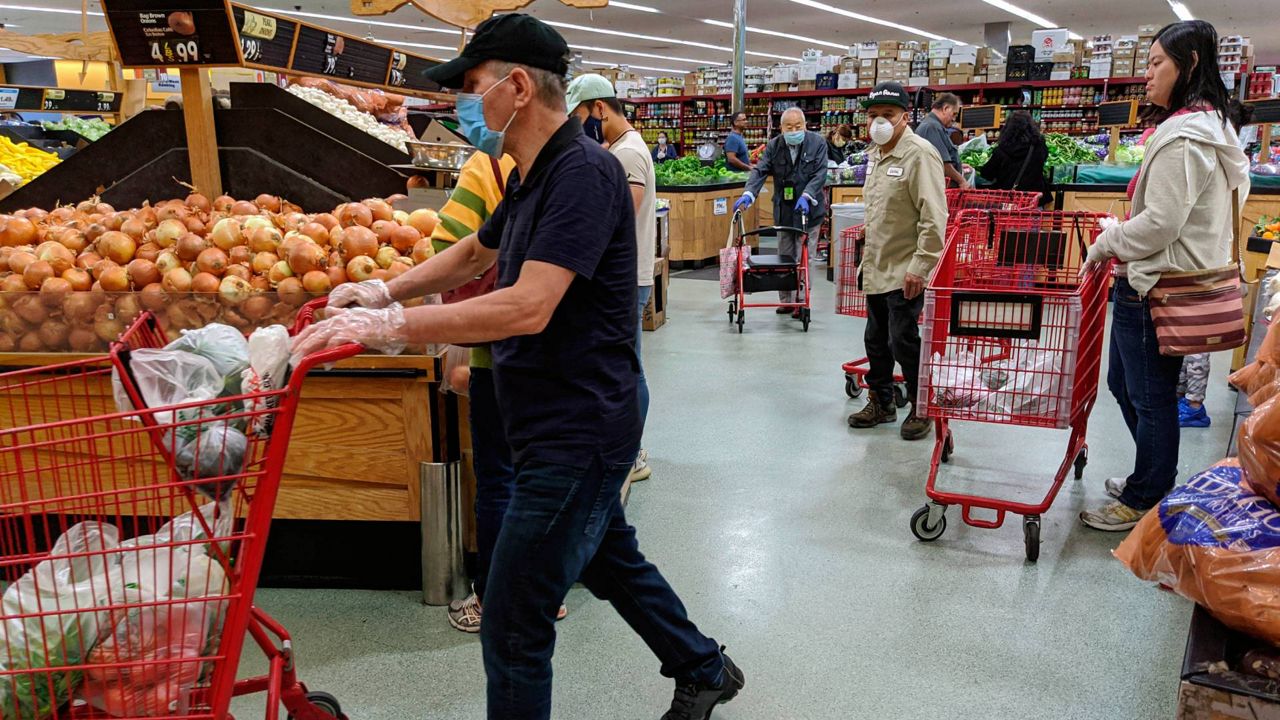New Yorkers are increasingly concerned about pocketbook economic issues driven by the war in Ukraine, the spiking cost of gasoline and rising inflation that could cool an economic recovery from the COVID pandemic, a Siena College survey released Thursday morning found.
They expect the war in Ukraine will have a long-term economic impact for the United States, while most have also found inflation has taken its toll on their bank accounts. Many New Yorkers also say they will pull back on spending and have seen their utility bills rise and the value of their retirement accounts fall.
In all, it's a sign New Yorkers are worried a combination of events could drive them to scale back spending at a time when pandemic-related restrictions have eased and public officials are eager for people to once again spend money at restaurants, movie theaters and bars.
“Inflation had gotten New Yorkers’ attention, but now add in war in Ukraine and consumers are very concerned, and many are planning to cut back,” said Siena College Research Institute Director Don Levy. “While a third think the war will soon be over and that our finances will not be largely affected, over half believe the war in Ukraine will generate economic shock waves that New Yorkers will face for years to come.”
The poll found 54% of New Yorkers expect the war in Ukraine and the international efforts to curtail Russia's invasion will have long-term economic affects, including rising financial difficulties for Americans.
Inflation has had a very negative effect on 26% of New Yorkers or a somewhat negative problem for 44% of those polled, the suvey found. For people earning less than $50,000 more than a third said inflation is a serious issue.
The vast majority of New Yorkers are also concrned with the rising cost of everyday items: 87% are worried about food prices, 80% are concerned about the cost of gas and 76% are worried about their utility bills. Sixty-eight percent of New Yorkers are also worried about the value of their retirement accounts.
And all this concern could have a broader impact on the consumer economy. As prices increase, 69% of New Yorkers plan to buy less in general, and 67% plan to spend les on expensive items. Nearly a third, 28% of New Yorkers, will use their savings to pay for everyday items.
And 34% plan to postpone or cancel a vacation in the next six months while 35% will consider getting a second job or generate a second source of income, the poll found.
Many of the New Yorkers most likely to be affected by the need to generate more money in their household are those between the ages of 18 to 34, are Black or Latino or have children at home. More than 25% plan to reduce their contributions to a savings account.
“We will have to wait and see how the economy reacts this spring and summer and what the impact of war in Ukraine will be, but for now, New Yorkers weary from two years of COVID, are expressing economic concerns that will pre-occupy their decisions and perhaps slow economic activity in New York,” Levy said.
The poll of 801 New York residents was conducted from March 14 to March 17. It has a margin of error of 3.7 percentage points.


